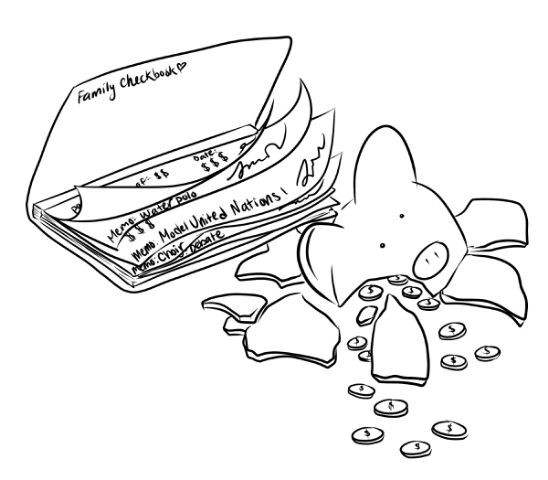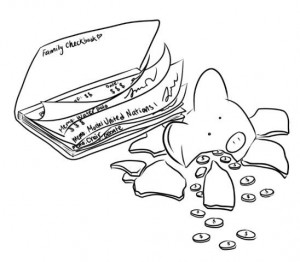How much is too much?

Extracurriculars and clubs at school are the perfect padding for college applications. However, what many students and parents have realized is that extracurricular activities are expensive. Indeed, upwards of two thousand dollars can easily be spent, cumulatively, on various activities like club sports and conferences. We are spending too much and not necessarily for the right reasons.

Rather than pouring money into several activities that supposedly look impressive on college applications, students should consider whether the experience will be worth the money spent.
Speech and Debate and Model United Nations, or MUN, are two of the largest organizations on campus. In Speech and Debate, to be a truly competitive debater, one must attend invitational tournaments to engage in more challenging competition. These invitationals require the student to travel to overnight tournaments, ranging from weekends in Northern California to six-night tournaments at Harvard University. These can cost between $400 and $1,300, according to Samantha Weiss, the adviser of Speech and Debate.
“Some debaters spend up to $10 thousand dollars per year on travel costs alone,” Speech and Debate president Henry Zhang said.
In MUN, students are asked to pay $250 at the start of the year, in addition to the costs of various overnight conferences that range from $250 to $750.
The inordinate spending on these activities is growing quickly. It is necessary to decide whether one truly wants to concentrate so much time, effort and especially money into one area. As students, we must stop and evaluate the value of such involvement. The pivotal question becomes: How much is too much? Several years ago, due to budget cuts, the school was also forced to request participation donations; this added significant additional costs ranging between $100 to $450.
The decision of whether or not to spend should not be taken lightly. The expenditures are only justified if spent on experiences that are beneficial and promising. If students are completely dedicated to a certain activity, then they should go for it. If, however, fulfillment is lacking, then students should give their involvement a second thought.
By being discretionary and wise in choosing a few activities they are passionate about, students can learn life-long lessons without emptying their pockets. There is no set limit for how much is too much, but we must step back and examine whether the money is being allocated towards worthy experiences.

